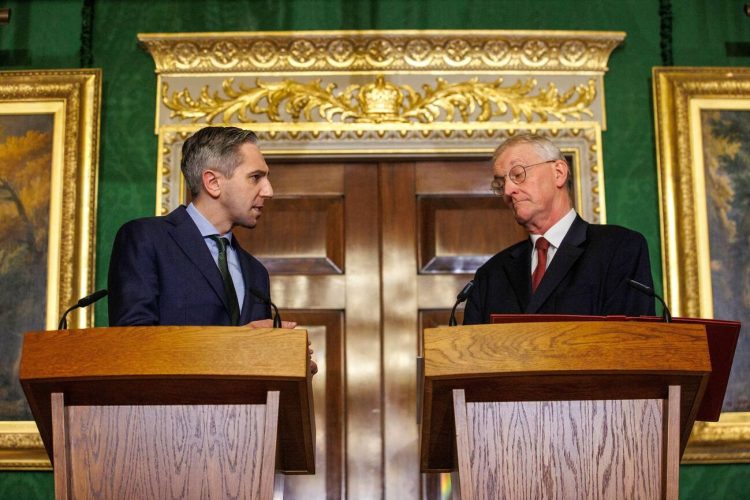The British and Irish governments have come out with a new model for reforming the Legacy Act’s implementation. After nearly a year of negotiations, both sides had reached the point where compromise was imminent. The hub of the proposal is the creation of a new “Legacy Commission” with enhanced authority to investigate Troubles crimes. These are murders, bombings, forced disappearances, and violence that had a political motivation. The initial agreement, based on a conditional amnesty for troops and security forces, provoked an angry reaction. Families of the victims said they were being cheated out of justice, while veterans believed that policies were needed to provide stability. The question now is whether this structure will succeed when others have not. The article discusses the new Troubles legacy deal, a framework by the UK and Irish governments to investigate unresolved crimes from Northern Ireland’s Troubles while balancing justice and reconciliation.
Responses to the new plan
The structure has drawn different reactions from communities. The majority of the families of the victims have expressed scepticism. Truth and justice remain outstanding, for them, years after the war. Conversely, former soldiers and their families have opposed it strongly. They fear the deal will expose them to revived attention and persecution. To some, the Troubles legacy deal promises accountability, while to others it reminds them of painful pages best forgotten. The balancing act between healing and opening new wounds continues to be a challenge for both governments.
Legacy deal in the firing line
It is not a political deal alone; it’s also a test for society. Political and religious lines continue to segregate communities in Northern Ireland. Protestant and Catholic communities still coexist with suspicion. This is shaping the welcome the proposal will get. Some leaders believe that the agreement can rebuild trust by allowing families to learn the truth. Others believe it can ignite more resentment in communities that feel authorities disproportionately target them. All Northern Irish parties opposed the earlier Legacy Act, which was a rare phenomenon in itself. The Troubles legacy agreement is similarly at risk if communities perceive it as biased in favor of one side. This ongoing debate proves that reconciliation is not possible merely by the act of parliament or committees but also by dialogue within society.
The number of unresolved cases
Twenty years after the Troubles were supposed to end, most cases remain open. These include murders and car bombings, up to disappearances and allegations of torture. The passage of time, destruction of evidence, and refusal of some to cooperate hinder investigations. More than half (53%) of UK adults say that those accused of killings in relation to The Troubles should not be able to receive immunity from prosecution in exchange for providing information about the crimes, while only one in five (22%) say they should (25% didn’t know). Consequently, these statistics underscore the hurdles any new strategy must bridge. The Troubles legacy settlement is therefore designed to shatter the impasse by granting the new commission broader investigation powers. However, lawyers caution that it must be accompanied by a strong force of resources, transparency, and patience. Otherwise, promises can soon turn into disappointment.
Families and veterans in conflict
The new plan corners retired soldiers and security officers. They believe they followed orders to rescue civilians and did what was asked of them during a brutal and violent time. They think reopening cases is unfair and would legalize acts committed decades ago. Victim families don’t think so. They feel that impunity has gone on for too long, and the truth must be exposed no matter what. This disagreement places the Troubles legacy agreement at the middle of a moral dilemma: is peace superior as a way of gaining stability or justice? Groups representing vets warn that the model would discourage military service in the next generation. Families respond that ignoring justice only ensures cycles of bitterness. Neither is ready to compromise at all, which leaves the governments in a bind.
Politics and trust
The issue is highly political. Politicians in London are concerned that more investigations will bring discredit to British soldiers. Politicians in Dublin are more interested in reconciliation and healing in Northern Ireland. Supported by local political parties, who remain highly suspicious themselves, though, they are not likely to change their opinion. Their opposition to the earlier Legacy Act demonstrated how rare it is for nationalist and unionist parties to agree on anything. But they did concur that the earlier law was unacceptable. Governments are tested by the Troubles legacy deal. Will they be able to persuade the public that this proposal is fairer? Northern Ireland has a fragile trust. Even small errors can lead to deep grievance. Building confidence will entail continuous communication, openness, equitable treatment, and concrete results.
Segregations in society that persist
There has not been total peace in Northern Ireland despite the major peace agreements. There still persists segregation in housing, schools, and even social life. Murals, flags, and ceremonies continue to nourish segregated identities. Young people have been growing up in neighborhoods where they barely mix with the other community’s youngsters. This social reality adds extra stress to the problems facing the Troubles legacy deal. Failing to address underlying divisions, the legal system is insufficient to end the problem. Experts warn that case isolation risks neglecting broader reconciliation. A lasting future requires cultural, educational, and economic measures that bridge gaps. The new commission could play a part in truth-telling, but wider social programs must be the foundation for its work. This is the only way progress can be achieved beyond the law.
Historical memory and justice
It is important how war is remembered by societies. The Troubles still exist in Northern Ireland’s shared memory. Families of victims carry stories that affect younger generations. Public discourse, memorials, and media ensure the past is kept alive. Some remember with a desire for justice. Others remember so that they might move on without reopening wounds. The Troubles legacy deal makes itself a process to contain this memory. It seeks the revelation of facts while providing families with acknowledgment of their losses. But memory is multifaceted. Each revelation will carry both relief and anger. Governments need to prepare themselves for the emotional impact of reopened investigations. Success will not only be based on legal results but on whether the process seems fair and humane.
Ahead of us
The road ahead is uncertain. The UK government and the Irish government have signaled their approval of the new order. The process will be watched closely by global onlookers. Success for the Troubles legacy deal will depend on whether it produces outcomes. Families want answers, veterans want justice, and communities want peace. Fulfilling these demands is not easy. The commission will take time, money, and independence to operate effectively. If managed well, it would be a model of post-conflict accountability. If managed badly, it risks creating further divisions and eroding trust. The coming years will tell whether this settlement can improve on its predecessors.
The Troubles legacy deal: the future
Constructing a new system is an opportunity and a risk. On the one hand, it comes with long-overdue probes and revelations of truth. On the other hand, it is frightening to others who believe they will be unfairly targeted. The Troubles legacy deal is more than just a legal proposal; it is a political act of bravery and a social endurance test. Northern Ireland can move forward toward lasting peace only if the structure manages to deliver justice without re-igniting the war. It ought to be complemented with cultural and social events that heal divisions. It is only then that the wounds of the Troubles can meaningfully start to heal.





























